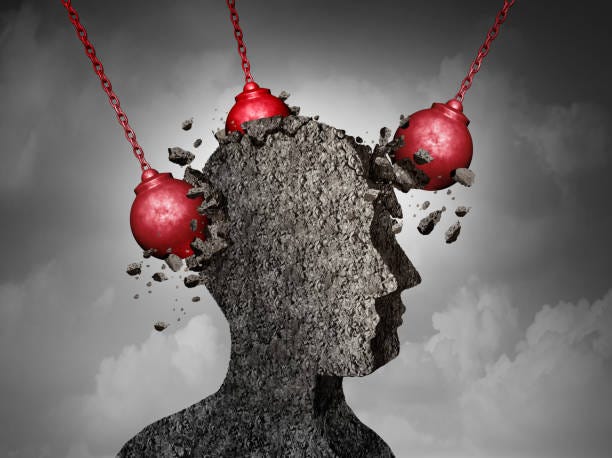Putting The Surgical Scalpels Down
Sewing broken scraps back together is barely step zero
0̷
There is an arbitrary weight that people put on numbers that end with 5s and 10s—maybe because of the number of digits on the human hand—that makes it seem, for example, that 68 is less significant than 60 or 75.
But my dad’s 68th birthday was indeed significant because I think I finally decided to put down some weapons that I’ve been using to crucify myself for more than a decade.
On Sunday morning, Appa was sitting on the couch watching cricket on the large, flat-screen TV with my older brother. I’ve never been able to watch professional sports without getting bored within the first three minutes, and it’s one of the endless reasons why I am so alienated from my family.
From what I could tell, there were two players in the opening lineup that my dad admired for their skill and their reputation. My intuition was that they had earned admiration for carrying the team to victory in many instances.
Within a quarter of an hour, when I came back into the family room, I could sense a field of surprise and disappointment. As it turns out, both of these players had already been bowled out. Luckily, the third player in the lineup seemed to have carried the team to a dignified loss.
In the post-game interview, the main MVP-who-fumbled gave a scripted apology, saying his performance faltered and there would be future opportunities to get his game back. He thanked his teammate for picking up the slack, though I could also sense resentment that he didn’t achieve the glory he deserved.
This is an important point.
It’s true: there are plenty of future matches to be played. But that can’t ever supersede the fact that in this round, you were tasked with a responsibility, and you didn’t play the right way to fulfill it. What is likely, too, is that even if another match comes along, it might be too late to shoot back into the position you once held as a superstar to fulfill it as well as you could ever again.
I
The first weapon to put down relates to relationships.
If you are a man—and I don’t think it matters what type of man you are—then there exists a very important need to earn the respect of other men. This is probably one of the most primal, inelastic, non-substitutable needs. Maybe some men don’t have this yearning, but I suspect that those men are damaged or underdeveloped.
As far as I can tell, there are essentially two distinct, but intertwined, reasons for this yearning.
The first reason is related to identity. Without the guidance of other men, especially those who have initiated into some type of wise maturity, you, as a man, don’t know who you are, and more importantly, who you are supposed to become.
The second reason is related to influence. Whether it is appreciated or not, the fact is, at least historically, that your ability to survive, thrive, and make a lady wet enough to impregnate her depends on your ability to be of value to the men you spend most of your time around.
Both identity (i.e., who you are) and influence (i.e., in relationship to others around you), tend to take on power-shaped flavors, and these particular flavors, for men, are commonly respect-shape desires.
None of this is a problem in a universal sense, but there are a whole bunch of complications that arise when you have the pair of desires to respect other men & to be respected by other men, but also this other pair of desires, which is to arouse other men & be aroused by them.
Suddenly, it becomes extremely difficult to find social and spiritual ecosystems that can help with fulfilling all four of these goals concurrently, but on an even more foundational level, that can help you orient to a healthy arc of development of these desires over a lifetime, including non-ruinous ways of dealing with how they aren’t met when they’re felt most intensely.
During one year of high school, I spent a lot of time working on projects with this pasty-skinned, freckled guy with a cute nose and dorky glasses. He was very smart and skilled in ways that I wasn’t, and I looked up to him for that. He also felt significant affection toward me, which assured me that our friendship was real.
My feelings remained entirely platonic toward him.
Until, one day, we went out for dinner at a Korean restaurant in midtown and, for whatever reason, the moment he started using chopsticks to eat, it felt like my heart burst open and I wanted nothing more than to thrust our souls (among other things) together in that moment.
I know it sounds really silly, but, “Uh, this guy who I’m ~best friends with started making my balls tingle with the way he used wooden stick utensils to shove bibimbap into his mouth, and I don’t know how to handle this feeling, because I’m sure he doesn’t have a crush on me back,” is an actual problem that needs some psychological support to be able to handle properly.
Let’s say, as a guy, you faced this circumstance: which guy in your circles would you talk to, that you would trust enough to give you real talk about the situation and actionable advice that doesn’t cause disasters? Your dad? Your brother? Your priest? Your friends at swim practice? A YouTube streamer?
Something that remains difficult for me to accept is that most men won’t ever understand what it feels like to deal with this category of experience, no matter how aptly I explain it. If you, dear reader, want to make it more relatable, maybe imagine that your son or nephew came to you with these types of issues. Would you have what it takes to help him negotiate passage through this ringer in a healthy way? Do you even know if you are a safe person to troubleshoot walking this terrain with?
Suffice to say, without going into too many painful details, I did not handle the situation well, and this led to all sorts of fucked up psychological hangups around both friendship and sex that I’m just now starting to untangle.
What generally happens, in my experience, is in response to this type of impossible situation, you develop a whole bunch of sneaky fucker tactics to fulfill all sorts of covert contracts with the guys in your life. One of the most insidious manifestations of this is treating different types of satisfaction as interchangeable, especially when you deploy convoluted reasoning toward yourself as a form of advanced gaslighting.
There is a certain type of pleasure that you get from accomplishing a goal shoulder-to-shoulder with a guy who you deeply adore, and who adores you back. There is a different type of pleasure that you get when you get face-to-face with a guy and fuck each other well.
These are not equivalent pleasures.
Nevertheless, they can look similar because they have a lot of affects with positive valence in common: shared vulnerability, intimacy, physical stimulation, flow, joy, meaning.
Trying to convince yourself that you can achieve one type of satisfaction by laundering the other leads to a lot of envy and heartbreak.
I understand why I attempted to manufacture silly solutions of this type as a way to deal with a circumstance that I had no help in dealing with. I will no longer berate myself because I’m unable to fit respect-shaped puzzle pieces into arousal-shaped holes, and vice-versa.
II
The second weapon to put down is related to ambition.
One thing that happens when you are a neurotic person is that you get good at completing surrogate activities as means to fulfill covert contracts with sneaky fucker tactics because you don’t see alternative options to going after what you want; most notably, in this case, a sense of purpose.
The first time I realized this was when I spent four months teaching English and music to destitute children in Bogotá. My foray into this type of “international development” work revealed to me that many, if not most, non-profit organizations that Help Underprivileged People™ exist to assuage the guilt of male eunuchs rationalist spergs over-socialized men and over-educated women with Master’s Degrees in Making The World A Better Place Through Charity™.
At one point during that summer, on a particularly humid day, I got into a heated argument with a particularly feisty teenage girl who enjoyed testing the limits of my authoritative stoicism (after all, I was supposed to be a role model to these impoverished children) with brash behavior. She told me–in an angry Colombian accent–that I wasn’t a real man because I hadn’t started having children at 19 years old, and that girls in her community started getting pregnant at 14 years old.
I didn’t have the heart, or the requisite Spanish skills, to retort to her that this was exactly the reason the neighborhood she lived in was of the quality that it was, as measured by the fact that her family members were regularly killed by random shootings and drug overdoses.
After that little scuffle, I was able to give up the idea that I would have any positive impact on these energetic slum inhabitants; interestingly, this allowed me to enjoy the rest of the summer way more, which probably created an unintended secondary effect in which I was a better behavioral influence on them compared to when I was trying to be.
Little did I realize at the time, that I, too, was engaged in an elaborate surrogate activity by gallivanting off to South America to “do good”: namely around establishing my sense of independence in the wider world, away from the stifling guardrails of institutional 2010s American upper-middle-class life—and that losing my virginity to a spicy Latino prince seven years older than me was an important part of that endeavor.
I suppose it must be true that our biggest criticism of others comes from what we see them doing that exists within ourselves.
I am not sure I can guarantee that I will stick to this, but to the extent that I maintain proper awareness, I will no longer abuse myself into reaching for all sorts of shiny prizes as an indirect means of dealing with emotional incontinence from a lack of personal purpose.
III
The third weapon to put down is related to service.
I hammer down on the never-ending idiocies of Effective Altruists quite often, as is just and warranted. That said, I suffer a bit from “good boy” syndrome myself, probably owing partially to the fact that my mom used to give me a lot of praise for being sweet and harmless by telling me Ganesha would bless me for acting well-behaved. That didn’t stop until I was about seventeen, by the way, which is somewhat heinous to contemplate, but I guess mothers must coddle, what can anyone do about it?
Sprinkle that in that tendency with loads of cultural and sexual estrangement, and it leads to some strange coping mechanisms; one of which was coming up with a farfetched dream that I would grow up to be the most exalted example of modern, assimilated Dravidian Hinduism in the West: a final proof that I am decent, worthy, and valuable.
In hindsight, as an elite-level technical project manager, I can confidently tell you that this is a terrible aspiration to harbor because there are no metrics that one can use to assess when or where it has been successfully attained. The best way to ensure you never reach your ambitions is to permanently keep your goals vague and unspecified.
Granted, the fact that the following two individuals are held up as standard bearers of Dravidian assimilation into American culture is deeply embarrassing, in several ways that should be obvious, and should not be acceptable by anyone with an ounce of South Indian pride and heritage, so clearly my intention was not entirely misplaced.
Either way, I’ve long since abandoned the pretensions of innocence that hide behind that fantasy, and their accompanying patterns of social interaction, which mimic the ones Mormon missionary boys display when they’re spreading the gospel in some third-world shithole, while not having eaten a proper meal for several weeks in a row.
If you notice, my Substack bylines—and several of my essays—clearly state that I am alienated in many ways, but that I still have a lot to give. The truth is that “having a lot to give” can be a general excuse used as a way to avoid making the difficult choices of “where and how to give”, including whether or not to sustain pretty illusions of belonging and intimacy that are not reciprocated.
I signed up to give too much effort to gold-wrapped institutions (and their “leaders”) who had no qualms about taking what I had to offer without ever addressing the desires I brought to the table, simultaneously grinding me down and spitting me out in the process. The better news is that I have also given up trying to please such implacable death machines, a description that also fits the people running them.
To be worthwhile, my humiliation, especially by my own hands, must serve a higher end than what has traditionally been on offer for naïve, embittered Millennials.
When I am depressed, I tend to develop tunnel vision around my heightened sense of lack and separation, and at the extremes, this tendency takes on a sort of vulnerable narcissistic quality, in that I feel special about being disgusting and untouchable.
One reliable cure for this is to do something unrelated to anything that I think matters that has an immediate positive impact, such as making macaroni and cheese for the lady who lives up the hill, who is recovering from hip surgery while undergoing a protracted divorce. In this way, it is important to want to help others, and the experience of life can be made better by expanding one’s focus beyond the self.
Sevā is a fundamental aspect of dharma for a reason.
That said, I’ve learned that taking up this type of volunteer work is less a sign of my naturally outflowing generosity and more a sure sign that something is going (probably badly) wrong in my life, which I’m avoiding looking at by collecting Good Boy Points.
I won’t denigrate myself for having slipped into this strategy, and I may slide back into it again at various points. However, I am no longer willing to warp the whims of my heart by tricking myself into believing that acts of service are a substitute for proper love.
IV
There are plenty more weapons that exist, each with an exquisite design, that I’ve been using for a long time to torment myself.
What motivated me to start putting down more and more of them, and to therefore write this essay, was finally grasping the general nature that all of them tend to share.
Modern institutions are deeply skeptical, if not mortally afraid, of the straightforward exercising of power by individuals in leadership positions (source: trust me, bro, and look at the state of everything). There are many reasons for this, some more valid than others, including the recognition that certain expressions of power, when concentrated in terrible individuals, lead to ill-conceived, wasteful forms of destruction.
One notable consequence of this, however, although not unique to growing up in the West in the 1990s, is that you mostly don’t learn how to develop a proper individual relationship to the exercising of power, which leads to all sorts of pathologies, especially in terms of masculinity, drive, and utility—feel free to scroll up and re-read this essay from the beginning if you missed it.
(And, no, joining a BDSM polycule under the Golden Gate Bridge does not count as an acceptable vehicle for training these impulses in relevant, high-stakes circumstances.)
The way that this leaky relationship to power gets cemented and amplified is contingent on many factors, so I can just tell you what happened to me.
Now, if you’re not familiar with the Enneagram, I will just explain that this chart shows that yours truly, the author of this essay, has developed a personality structure that meets conflict with a high propensity for exerting dominance, and an even higher propensity for collapsing into shame.
This is a wicked combination, both positively and negatively, given the right contexts.
What most authorities did to me, especially my midwit school teachers and coaches, even if they were well-meaning, was to take the forceful implements that I’d made to take on the world with a healthy energy, and encourage me to cut myself open and stick them inside of myself, and use them to puppet my organs to get me to comply with their dictates.
This type of dynamic leads to fascinating layers of internalized guilt.
One of my guesses is that this teaching style is a relic from a certain type of puritanical Christianity, where the guilt smeared on heavily by female elders is intended to be internalized to orient people toward grace, or at least social cohesion—that’s a hypothesis that would take a while to unpack—except that the way that this behavioral physics is transmitted through today’s secular Western institutions ends up causing a ton of impotence.
Truly, what exquisite torture machines I learned to hide myself in.
The advantageous thing to realize after years of self-punishment is that trying to make oneself safe in the world doesn’t often accomplish this task, which means that you can kind of rest in a sense of security, knowing you’ll never have it.
I no longer wish to punish myself by adopting these interlocking methods of compliance to create a sense of safety, nor to further punish myself by admitting how tempted I am to do so. I won’t seek out retribution against those who installed such compulsions within me, but I will no longer trust that they have my well-being in mind, and I will work to make sure they can’t influence my drives any further than I permit.
V
Something I’ve tried to convey in this piece is my level of exasperation.
Maybe you’ve picked up on it. Maybe it’s even persuasive. Maybe I ought to learn to laugh at silly things instead of clogging my metaphysical colon about them.
The fact of the matter is that I am sick of having an existential irritable bowel syndrome. I simply want to be able to eat ontological ice cream without being swept up in waves of mental constipation and diarrhea.
There are a lot of people who look at me with a sort of admiration. These people tend to assume that I’ve been living with all my digits and limbs tied behind my back, and that I’m going to start enjoying life when I cut through all the knots and set myself free. That is to say, to the degree I’ve been held back by melancholy misery, I will soon roar forward on the Dragon of Vitality with coherence now that I’m making substantial progress on Seriously Unfucking Myself.
I’m a little more doubtful.
Most of them have never known me close enough to see all the ways I use my intelligence and grit to tear myself apart like an evil surgeon gleefully digging into flesh with surgical scalpels. Every web of trauma, self-caused or not, that I unclench seems to lead to an even more complicated pile of knotted memories and associations that require more convoluted targeting to unclench.
The soothing salve of compassion is still hidden far away.
Even if I reach some sort of bottom, where the twists get untwisted into blissful relaxation, the bitter truth is that unfucking yourself is simply not sufficient to lead to a life well lived. You have to spend time and effort doing, making, and sharing the good stuff, too.
Whether in friendship, romance, business, or art—being in the arena for long, strenuous periods, without clocking out every seven minutes because you keep accumulating untreated injuries, is what matters.
There is nothing that substitutes for decades of mastery, at minimum, in whatever context, and I simply don’t have it. I’m not sure I get the chance to stride forward toward who I crave to be, in a way that can make up for lost time.
I’ve made a tenuous peace with what has happened and the choices I’ve made that led me up to this point. That doesn’t mean I’m happy about it, or that I am even close to something resembling forgiveness, but I can stop digging into my skin with the cheese grater of blame.
I certainly think it's possible that I just flounder around here for a long time, if not forever. That’s certainly not a cause for celebration, and it’s not a cause for optimism either.
VI
The evening before I left Arizona, after cake and candles, my family and I decided to play a game of Rummy. I made the mistake of sitting to the right of my father, who remembers every single discard during each play and is therefore notoriously stingy about throwing down only the cards that I’m least likely to pick up.
It’s edifying to witness my dad’s shark-like scheming skills up close, and a bit intimidating to be on the receiving end. They’re the same ones he employed to generate success as a professional executive. Being on the receiving end, though, also means knowing that his savvy is what allowed him to lavish my brother and me with a high-quality childhood. It’s also awe-inspiring to realize that after six (close to seven) decades, he still possesses that particular savvy in spades.
In terms of cards, however, it meant that most of my victories came after several rounds of waiting for the right finisher to show up, leading to a disappointing smattering of points won after an extended period of intensifying urgency.
If I look out ahead of me, that’s what I see from where I stand: a life of muted victories, after an irritating and protracted battle against chance, time, and a seat at the difficult end of the table. From a certain perspective, that’s just another way of describing life from the moment you’re born.
I suppose it becomes easier to handle, at least, when you decide that you’re done cutting yourself open with cruelty from the inside out as a means to score.






Thank you for putting this much care, soul, and structure into something so personal. Truly one of your strongest pieces.
"There is nothing that substitutes for decades of mastery, at minimum, in whatever context, and I simply don’t have it. I’m not sure I get the chance to stride forward toward who I crave to be, in a way that can make up for lost time."
"... a farfetched dream that I would grow up to be the most exalted example of modern, assimilated Dravidian Hinduism in the West: a final proof that I am decent, worthy, and valuable.
In hindsight, as an elite-level technical project manager, I can confidently tell you that this is a terrible aspiration to harbor because there are no metrics that one can use to assess when or where it has been successfully attained. The best way to ensure you never reach your ambitions is to permanently keep your goals vague and unspecified."
Speaking as a fellow shit sitting in the sewage treatment tank after floating down the gifted child to tortured adult pipeline, have you started breaking down who you want to be into a series of objective and actionable short term milestones?
Also feel compelled to mention that making up for lost time is a useless distraction. Comparing yourself to an unknowable, made-up counterfactual (or the lives of people who aren't you) and then feeling bad about it is pure impotence.